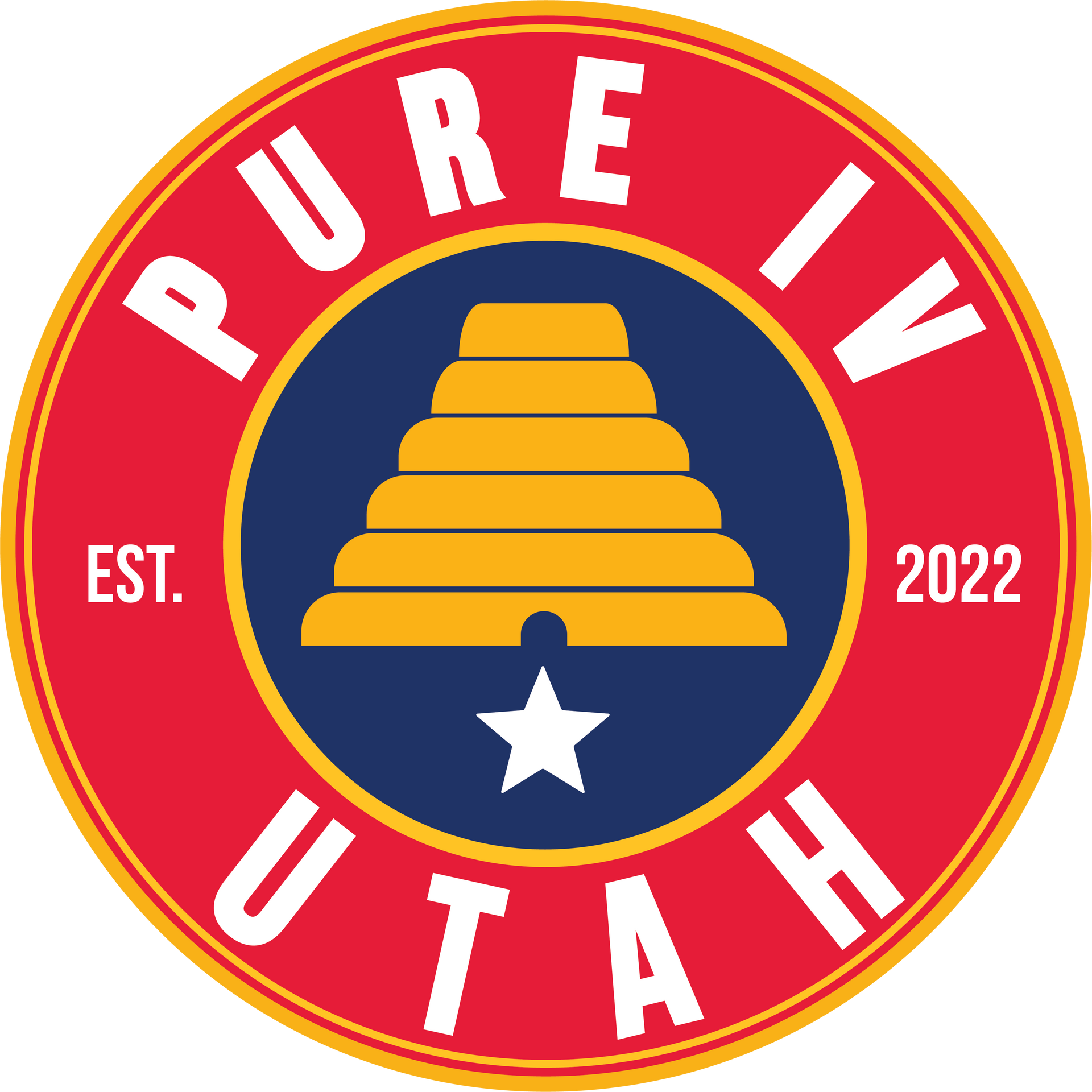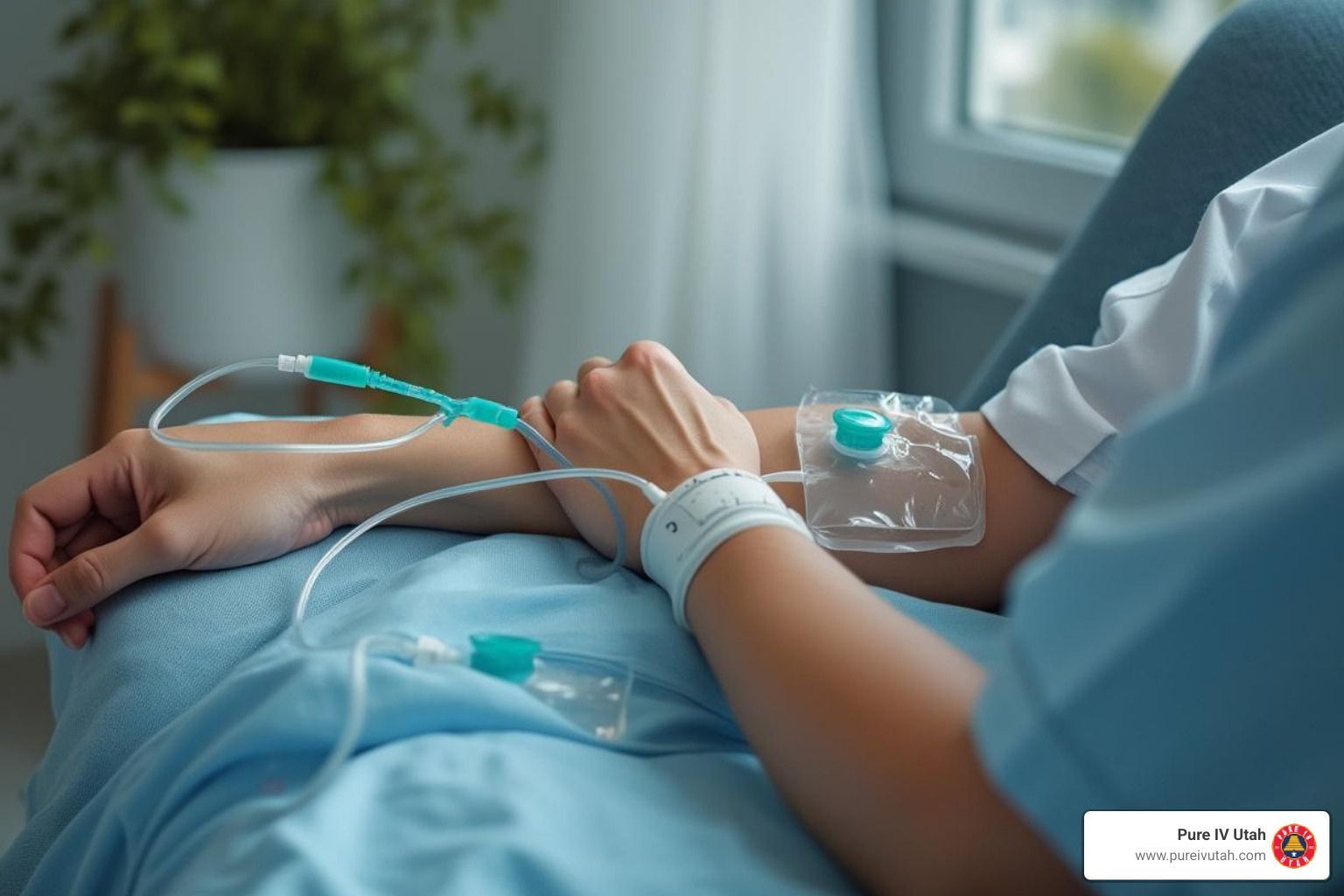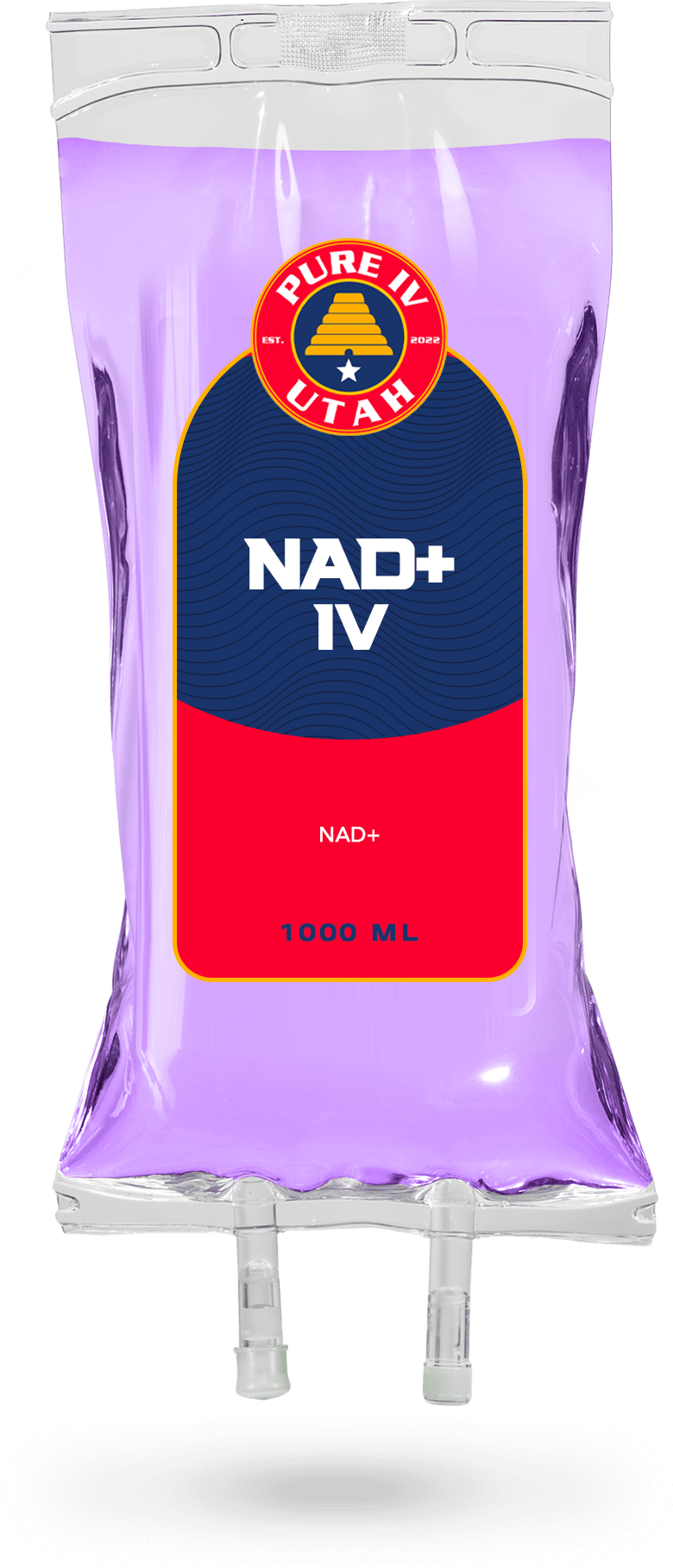IV Therapy for Post-Operative Recovery Benefits

Medically reviewed by Micaela Strevay, FNP-C, PMHNP-BC
Joseph Lopez • November 25, 2024
Table of Contents

Post-operative recovery can be a challenging process for many patients. With the right tools and therapies, however, this phase can be significantly improved. One such method that has gained attention is intravenous (IV) therapy. This article delves into the benefits of IV therapy specifically for individuals recovering from surgical procedures.
Understanding IV Therapy
What is IV Therapy?
IV therapy is a medical procedure that delivers fluids, medications, and nutrients directly into the bloodstream through a vein. This method allows for rapid absorption, making it very effective for patients who need immediate support, especially after surgery.
Practically, IV therapy can provide hydration, electrolytes, and vitamins tailored to a patient’s specific needs. Unlike oral medications or supplements, which can take time to digest and metabolize, IV therapy bypasses the digestive system and enters the bloodstream directly. This direct delivery system is particularly advantageous in emergency situations where time is of the essence, such as in cases of severe dehydration, shock, or critical illness. Furthermore, IV therapy can be customized to include a variety of components, such as antioxidants, amino acids, and even medications for pain management, making it a versatile tool in modern medicine.
How Does IV Therapy Work?
The process of administering IV therapy involves inserting a small catheter into a vein, typically in the arm. The therapy can then be delivered continuously or in boluses, depending on the patient’s requirements.
Once in the bloodstream, the fluids and nutrients can reach various organs and tissues rapidly, enhancing hydration levels and nutrient availability. This efficiency is particularly beneficial for post-operative patients who might struggle with oral intake due to nausea or lack of appetite. Additionally, IV therapy is not limited to hospital settings; it has gained popularity in outpatient clinics and wellness centers, where individuals seek treatments for hydration, energy boosts, or recovery from hangovers. The rise of mobile IV therapy services has also made it possible for patients to receive these treatments in the comfort of their own homes, further expanding access to this effective medical intervention.
The Role of IV Therapy in Post-Operative Recovery
Speeding Up Recovery Time
One of the most significant advantages of IV therapy for post-operative recovery is its ability to speed up the healing process. Proper hydration and nutrient delivery can aid in quicker tissue repair and regeneration.
Studies have shown that patients receiving IV therapy tend to have shorter hospital stays and experience less fatigue compared to those relying solely on oral intake. This enhanced recovery can also reduce the psychological stress often associated with prolonged healing times.
Moreover, the use of IV therapy allows for the precise administration of vitamins and minerals that are crucial during the recovery phase. For instance, vitamin C is known for its role in collagen synthesis, which is essential for wound healing. By delivering these nutrients directly into the bloodstream, IV therapy ensures that they are available to the body immediately, maximizing their effectiveness. This can be particularly beneficial for patients undergoing major surgeries, where the demand for nutrients is significantly heightened.
Reducing Post-Surgery Complications
Post-operative complications such as infections, dehydration, and delayed healing can prolong recovery. IV therapy can help mitigate these risks by ensuring that patients receive adequate hydration and essential nutrients, which play a vital role in the body’s healing mechanisms.
For example, patients who struggle with nausea or vomiting after surgery may find it challenging to keep food and fluids down. IV therapy circumvents this issue, ensuring that their bodies receive the necessary support without the discomfort associated with oral intake.
Additionally, the use of IV therapy can help maintain electrolyte balance, which is crucial for muscle function and overall bodily processes.
Electrolytes like sodium, potassium, and magnesium are vital for nerve signaling and muscle contractions, and their depletion can lead to complications such as muscle cramps or irregular heart rhythms. By providing these electrolytes through IV therapy, healthcare providers can help stabilize patients more effectively, allowing them to focus on their recovery rather than managing uncomfortable side effects.
Different Types of IV Therapy for Post-Operative Recovery
Hydration IV Therapy
Hydration IV therapy involves administering fluids to replenish lost electrolytes and maintain optimal hydration levels. Following surgery, many patients might become dehydrated due to a variety of factors such as fasting pre-surgery or fluid loss during the procedure itself.
This therapy not only replenishes the body’s fluid balance but also helps in flushing out toxins, thereby supporting overall recovery. Customizable hydration solutions can be prepared based on individual needs, further enhancing this therapy’s effectiveness.
Vitamin Infusion IV Therapy
Vitamin infusion IV therapy delivers essential vitamins and minerals directly to the bloodstream. Key nutrients such as vitamin C, B vitamins, and zinc are crucial for immune function and healing processes.
The infusion can combat deficiencies that may occur due to lack of oral intake. By replenishing these nutrients, patients can improve their energy levels and boost their immune response, further aiding in recovery.
The Science Behind IV Therapy and Recovery
The Impact on the Immune System
An important aspect of post-operative recovery is supporting the immune system. IV therapy can enhance immune responses by delivering vital nutrients that promote the production of antibodies and white blood cells.
This immediate nutrient support is particularly beneficial after surgery, when the body is vulnerable to infections. A well-nourished immune system is better equipped to fight off pathogens, ultimately leading to faster recovery and a reduced risk of complications.
The Role of Nutrients in Healing
Nutrients aid healing by repairing tissues and modulating inflammatory responses. Various nutrients delivered via IV therapy play specific roles in this process. For instance, protein is essential for cell regeneration, while vitamin C is vital for collagen synthesis.
Understanding the specific nutritional needs of post-operative patients allows healthcare providers to tailor IV therapy effectively. This personalized approach can have a profound impact on overall recovery rates and patient satisfaction.
Risks and Considerations of IV Therapy
Potential Side Effects
Like any medical procedure, IV therapy comes with some potential side effects. These may include discomfort at the injection site, bruising, or in rare cases, an allergic reaction to the nutrients being infused.
It's essential for patients to discuss their medical histories and any concerns with their healthcare providers prior to undergoing IV therapy. Understanding the risks can help patients make informed decisions about their post-operative care.
Who Should Avoid IV Therapy?
Certain individuals might be advised against IV therapy. For instance, those with specific cardiovascular conditions or allergies to particular formulations should approach this therapy with caution.
Moreover, patients who do not have a demonstrated need for IV therapy may benefit from oral intake instead. Ultimately, a thorough assessment by a healthcare provider will determine the best approach for each patient’s recovery journey.




